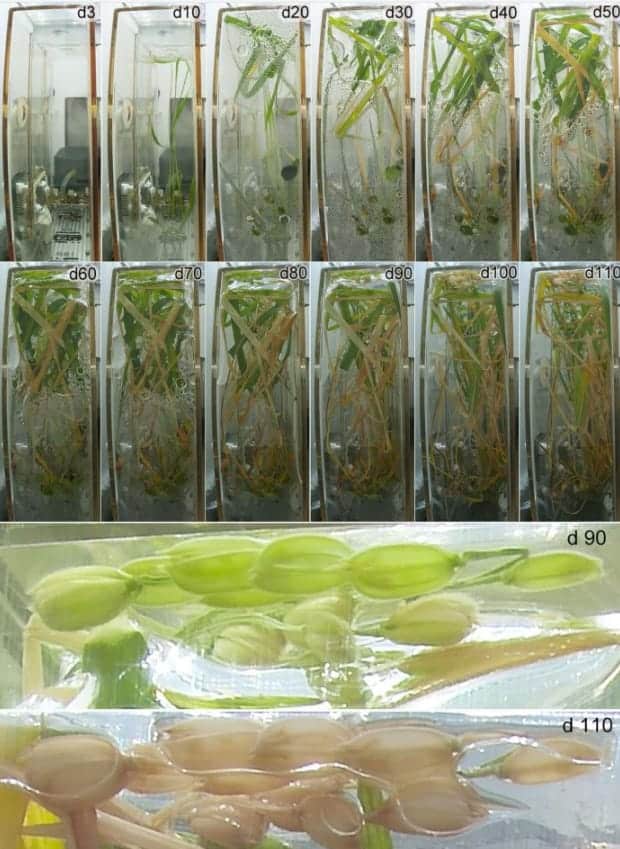The process of growing rice in space was completed and the seeds were obtained through the Shenzhou-14 spaceship, which returned to Earth last month.
It was the first time in history that the full life-cycle growth experiment of rice was completed in space. Previously, only Arabidopsis, rape, peas and wheat had successfully grown from seed to seed in the space environment, but the rice had not been able to complete the full growth cycle in such circumstances.
The life-cycle growth experiments of rice were handled by Zheng Huiqiong, a researcher at the Center for Excellence in Molecular Plant Sciences under the Chinese Academy of Sciences (CAS), and her team.
The seeds of ratoon rice were also produced successfully in the experiments, opening new rooms for efficient production of space crops, said Zheng, adding that this is also world’s first attempt of applying ratoon rice technology in space and is expected to significantly increase the yield of rice per unit of volume.
Will it be a way out for flood-ravaged Pakistan? The floods in Pakistan have damaged the rice crop and hindered wheat planting, according to a Global Agricultural Information Network report from the Foreign Agricultural Service of the US Department of Agriculture (USDA).
The report said rice output for the 2022-23 marketing year was revised down to 8.3 million tonnes, well below last year’s record total of 9.1 million. Projected rice exports are also reduced to 4.5 million tonnes in 2021-22, which would still be a record, and to 4.2 million tonnes in 2022-23.
The USDA also said floods are likely to negatively impact the 2023-24 wheat planted area in Pakistan.
Rice, the main crop for humans, is a major candidate crop for the life support system in future manned deep space exploration.
Rice breeding under space microgravity is one of the important directions of space botany research. To ensure long-term survival in space, humans must make sure that plants can complete the alternation of generations and successfully reproduce in space.
“The experiments lasted for 120 days in micro-gravity environments,” said Zheng Huiqiong, researcher at the Chinese Academy of Sciences (CAS), adding that they recorded the full lifecycle of rice, from flowering to seeding, and discovered the effects of micro-gravity on a variety of agronomic traits including plant height, growth rate, water regulation and response to light.
According to the research, rice is expected to flower earlier in space than on the earth. The key genes that control flowering respond differently to micro-gravity environments compared with normal gravity on the ground.
“This provides a new direction for future use of modified flowering genes to promote plant adaptation to space micro-gravity environments,” said Zheng.


